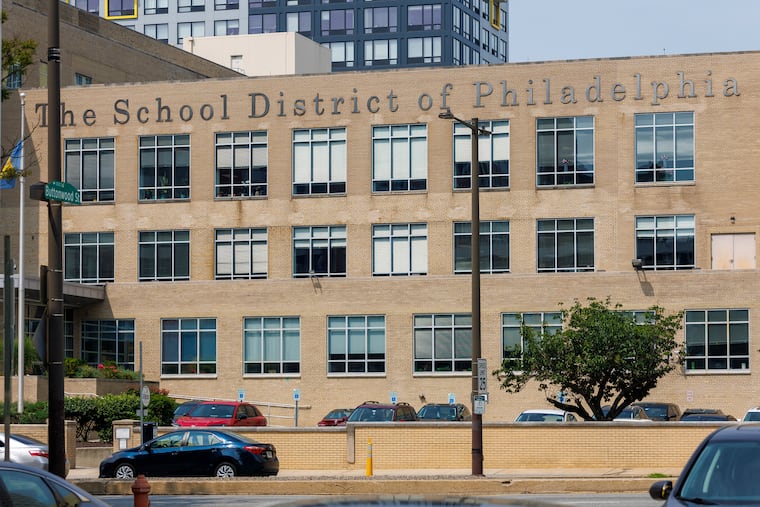Philadelphia’s school board on Thursday night approved a measure to borrow up to $1.5 billion to enable the district to pay its bills through December.
The move comes at a steep price — $30 million in borrowing costs — and comes amid a continuing budget stalemate in Harrisburg.
So far, the district is short about $400 million in state payments that should have been made in July and August, money that was promised to cover essentials, including basic and special education services and student transportation.
Statewide, school districts have missed more than $2 billion in expected payments from Harrisburg.
The school system’s borrowing costs “will never be reimbursed, and will never reach the classroom,” board member Whitney Jones told the public Thursday. “The budget delay is costing our schools money that we do not have, and it’s further limiting what we can provide to students.”
The board approved the temporary borrowing, but expressed frustration, anger, and worry about the extraordinary step they said they were forced to take.
Board member Joan Stern, a public finance lawyer with decades of experience who has drafted debt and finance legislation enacted in Pennsylvania and New Jersey, said the board’s action was “unprecedented.”
“What the state’s doing is unconscionable,” said Stern.
Joyce Wilkerson, another school board member, called the need to borrow “a disgrace.”
Why does the district have to borrow?
The district is not new to temporary borrowing — it’s had to issue so-called tax and revenue anticipation notes in 38 of the past 40 years.
That’s because of its setup — Philadelphia is the only school system in the state that cannot raise its own revenue, so it relies on the city and state and their timelines to take in money.
Teachers have to be paid regularly, and charter school payments must also be made on time, but the city’s real estate tax, for instance — a major source of district revenue — is due March 31 and the district’s portion of that comes soon afterward.
For a time, the district typically completed its temporary borrowing in July. In recent years, as the district’s financial fortunes improved slightly, it’s been able to delay that to later in the year, and borrow less, with a smaller debt service cost.
The Thursday borrowing figure represented roughly three times what the district typically has to procure.
The school board authorized borrowings of up to $775 million from two separate banks, PNC and Bank of America.
The temporary borrowing will hold the district if the impasse continues into December. Board members asked Mike Herbstman, the district’s chief financial officer, what happens if the stalemate lasts longer?
“We are already beginning to look at all possible options,” Herbstman said. The district has to prioritize paying employees and vendors, making debt service payments, and making payments to charter schools, and “we anticipate doing that in the future … but there is a point that we will reach, if this continues, where it will be more difficult to continue to borrow.”
A Pennsylvania problem
Though Philadelphia’s vulnerability to delayed state aid is more pronounced than other districts’, it’s not alone in being put in a tough spot.
Mackenzie Christ, a spokesperson for the Pennsylvania School Boards Association, said districts across the state are delaying hiring, putting off repairs and technology upgrades, and more because of the uncertainty.
“This is not a result of poor planning or mismanagement at the local level; rather, districts are being asked to operate without the tools they need to succeed,” Christ said in a statement.
Borrowing is becoming more common, Christ said.
“While PSBA does not maintain a list of districts that have borrowed due to the impasse, we have heard anecdotally that this is occurring across the commonwealth,” she said. “Despite the delay in state funding, districts are still required to meet payroll and cover operational costs. Borrowing to cover these expenses comes at a cost — and unless the final state budget includes provisions to reimburse districts for these borrowing costs, that burden will fall on local taxpayers.”
Philadelphia school board members beseeched members of the public to push lawmakers hard to pass a budget quickly.
“The stakes cannot be higher,” Jones said.
